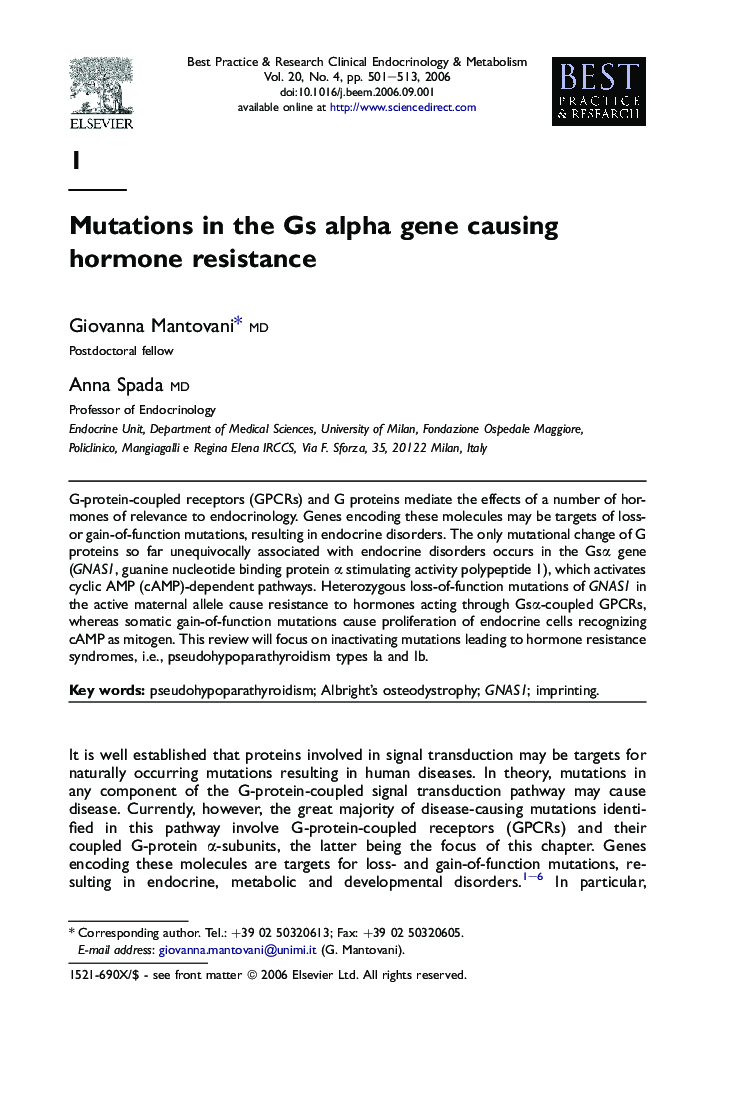| Article ID | Journal | Published Year | Pages | File Type |
|---|---|---|---|---|
| 2792262 | Best Practice & Research Clinical Endocrinology & Metabolism | 2006 | 13 Pages |
G-protein-coupled receptors (GPCRs) and G proteins mediate the effects of a number of hormones of relevance to endocrinology. Genes encoding these molecules may be targets of loss- or gain-of-function mutations, resulting in endocrine disorders. The only mutational change of G proteins so far unequivocally associated with endocrine disorders occurs in the Gsα gene (GNAS1, guanine nucleotide binding protein α stimulating activity polypeptide 1), which activates cyclic AMP (cAMP)-dependent pathways. Heterozygous loss-of-function mutations of GNAS1 in the active maternal allele cause resistance to hormones acting through Gsα-coupled GPCRs, whereas somatic gain-of-function mutations cause proliferation of endocrine cells recognizing cAMP as mitogen. This review will focus on inactivating mutations leading to hormone resistance syndromes, i.e., pseudohypoparathyroidism types Ia and Ib.
